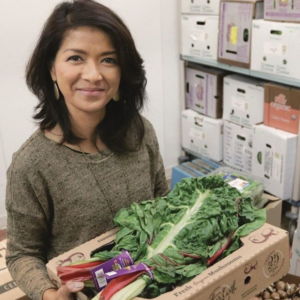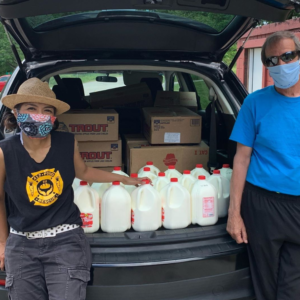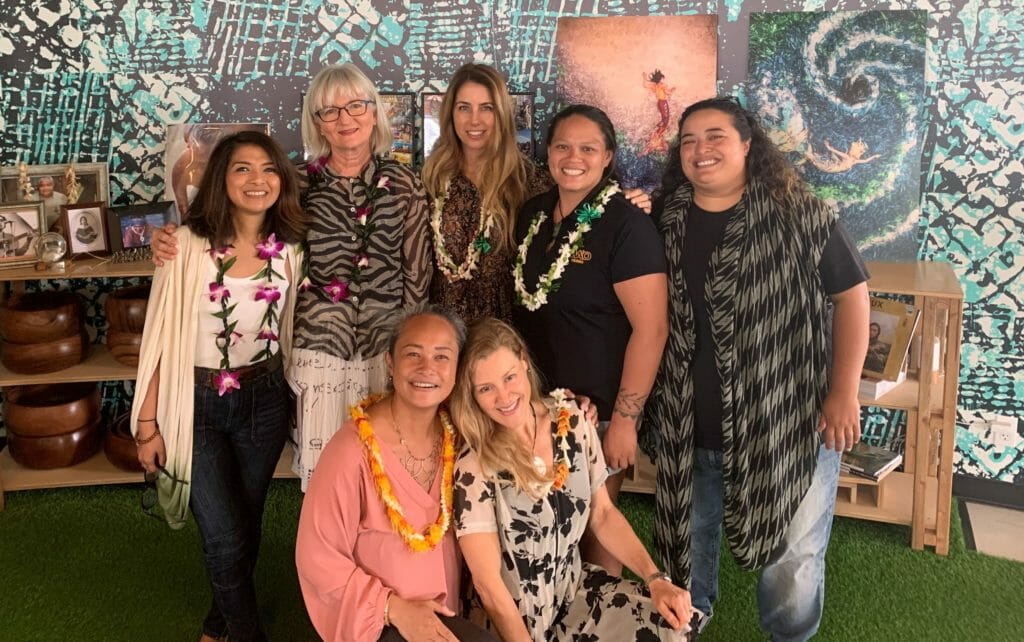
2019 WE Empower Awardee, Leah Lizarondo, is the co-founder of 412 Food Rescue, a technology-driven food recovery platform that bridges the disconnect between the food wasted in the United States with its food-insecure citizens. Roughly one in seven Americans is food poor and some 40% of food produced is never eaten, but ends up as waste in landfills, creating Greenhouse Gas. Through utilizing technology and establishing the mobile app Food Rescue Hero, 412 Food Rescue transports food surplus to a network of nonprofits that connects the glut with people, not landfills. The organization supports people in need by providing access to other social services that can aid their users. Its program, Single Stop, is an online screening tool that condenses convoluted social service eligibility rules into a simple, confidential process to help people receive the aid they need.
Towards a Sustainable Future
By utilizing volunteer service to transport surplus to nonprofits that redistribute food, 412 Food Rescue reduces food insecurity and promotes SDG 2 Zero Hunger. The point-to-point food distribution model allows pre-existing food aid organizations to have greater access to recovered food. SDG 12 Responsible Consumption and Production is attained through facilitating a link between these organizations and food surfeit. The agriculture industry is one of the main causes of climate change in the US, yet traditional food markets waste much of what the industry produces. 412 Food Rescue estimates that the cumulative 6 million pounds of food they have redirected from landfills has mitigated 3 million pounds of CO2 from impacting the environment. Reducing food waste allows 412 Food Rescue to support SDG 13 Climate Action.
Providing Food Security When Social Interactions are Limited

COVID-19 impacted many businesses and organizations in ways that required strong leadership and navigation. Over the past couple of months, Lizarondo worked tirelessly to ensure that her staff, volunteers, and recipients have continual access to food. In many ways, she has needed to restructure her business in order to meet the safety requirements of social distancing. While many might have fallen to the pressure, Lizarondo has persevered and continued her food rescue business.
One of the first transitions Lizarondo made was ensuring her volunteer drivers have access to gloves to avoid contaminating donated food. Then, she partnered with local restaurants and food banks to create meals that are delivered directly to people’s doors. This showcases Lizarondo’s quick and innovative thinking as 412 Food Rescue previously did not provide meals nor deliver. Her adaptability to new environments and contexts has allowed the organization to thrive in these unprecedented times. When she was presented with the issue of getting food to students in need, she worked until she found a solution: using the preexisting bus system. Most students live near a bus stop that takes them to school, using these routes, Food Hero’s are able to drop off meals to students who relied on their schools as a stable source of food.
Giving Thanks
Lizarondo and 412 Food Hero were pleasantly surprised by the eruption of volunteer support they have received since quarantine began. She states that the organization has seen the largest increase in volunteers since its inception and she credits this influx with people’s innate altruism. Without the support of these volunteers, 412 Food Rescue would not have accomplished all it has during this time. Lizarondo also gives thanks to her community at the WE Empower UN SDG Challenge. She says that without the support of leaders curated through this program, Lizarondo would not have the resilience and flexibility to meet the demands brought by quarantine. Listen to Leah Lizarondo’s interview with WE Empower co-chair and Vital Voices’ CEO, Alyse Nelson, on the podcast Voices of Resilience.
